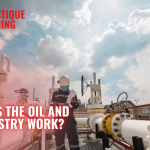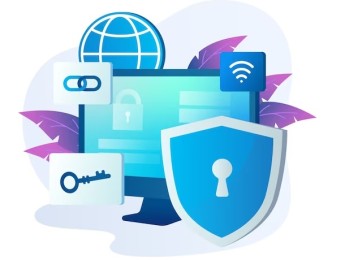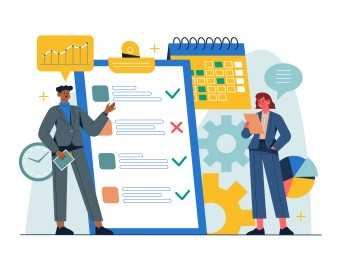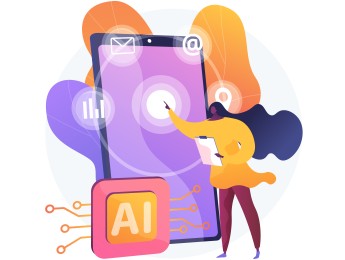There is no overlooking the practical applications of instrumentation when it comes to successfully running a modern plant. They are the silent coworkers that operators need to keep things running smoothly. From gathering information to helping with plant condition analysis, their importance should never be underestimated. There is also an element of automation, but the operator must understand these decisions and processes. The digital age has brought about many enhancements, and skills in running these can be lacking. Model-based control equipment is something that operators need to understand.
This course will ensure that technicians and engineers can deal with servicing, troubleshooting and maintaining all field instruments and instrumentation. Delegates will develop critical skills and learn all aspects of vital components such as HART and Fieldbus, as well as transmitters and other parts of communication. You will then look at loop tuning, process control and model-based control systems. There are plenty of opportunities to develop practical and theoretical skills, and this is a valuable course for many learning skills and tools for engineers and technicians.
Upon completion of this course, participants will be able to:
- Understand the objectives and roles of instrumentation in any plant.
- To be able to understand process control and the importance of process variables.
- Determine the suitable transmitter for an application.
- Improve their skills in process control strategies.
- Implement loop tuning strategies (using numerous methodologies) correctly.
- Describe the concept of model-based control.
- Show understanding of IMC and MPC strategies.
- Demonstrate the skills, points of view, and competencies required in the field of instrumentation and field instrument servicing.
- Understand significant process variables controlled in the industry (Temperature, pressure flow, levels, analytical) maintained in the process Industry.
- Describe different types of the refining industry and petrochemical drawings.
- Be comfortable with field process control loops.
- Understand elements found in different loops, such as regulators, controllers, and final control elements.
- Apply skills in testing, modifying and maintaining and modifying process field instruments, both pneumatic and smart electronics.
This course is intended for:
- All instrumentation and control personnel
- General maintenance personnel
- Plant managers and supervisors
- Control and instrumentation technicians and engineers
- Contract Technicians, as well as Sales and Service Representatives
- Engineers from all disciplines
- Instrumentation Artisans
- Supervisors
- People involved in Projects
- People dealing with Instrumentation Equipment Selection
- Representatives from the Safety Department
- Representatives from Purchasing Departments
- Anyone looking to upskill for future career advancement
Teaching takes place in various settings, including face to face in a classroom environment. It will ensure that participants can expand their knowledge of the subject and increase their skills. The course is delivered via various methods by a specialist tutor. This will include PowerPoint presentations, reviewing articles and other relevant materials, group or individual exercises and discussions. There may be some independent work set, and the course will require submitting articles to demonstrate understanding and an end-of-course test. Note-taking is encouraged, and you are welcome to use electronic devices to do this.
The course manual will form part of the learning but will give you references for the future. You are encouraged to ask questions and, if needed, spend time one-on-one with your tutor to review any issues. You will network with peers in similar roles during your time in the classroom.
Day 5 of each course is reserved for a Q&A session, which may occur off-site. For 10-day courses, this also applies to day 10
Section 1: Introduction to Process Variable Measurement
- Instrumentation systems: Key terms and definitions
- Field Instrumentation Control Loops, the components: sensors, transducers, transmitters, controllers and control valves
- The Instrumentation Systems: signals, terms and definitions
- Range, span, and zero processes: the instrumentation calibration parameters:
- HART Protocol and Fieldbus
- Digital communication and techniques
- The configuration parameters of the smart transmitter
- Differential pressure transmitter: The complete rundown (installation, wiring, calibration and configuration)
- A quick introduction to final control elements (including control valves, VSD and VFD)
- Field instrumentation control loops: troubleshooting
Section 2: Industrial Temperature Measurement Considerations
- Applications, TC wiring and code for Industrial thermocouple (TC)
- Installation, wiring and testing in the thermocouple field
- Transmitter and calibration procedure for thermocouple temperature
- Understanding Thermocouple temperature signal converter (TC)
- Thermistor and RTDs: Temperature Detectors ( Industrial Resistance)
- Industrial Applications of Temperature Switches
- Set and rest the calibration and testing process of temperature switches
- RTD sensors signal converter and RTDs Temperature Transmitter the calibration procedure
Section 3: Different Level Measurements to be Aware Of
- DP Transmitter: level measurement with open and closed tanks
- A continuous method of measurement - indications and level gauges
- Displacer and magnetic transmitter and level indicators
- Hydrostatic head level measurement
- Close and open tank - how to apply the hydrostatic head calculation
- Oil production and the two and three-phase separators of interface measurement
- Calibration and installation of level switches
- Installation and programming for radar and ultrasonic level measurement
Section 4: Pressure and Flow Measurement
- Principle of operation, devices, uses and installation considerations of pressure measurement
- Principle of operation, devices, uses and installation considerations of flow measurement
- Pressure gauges: calibration, assembly and disassembly
- Installation considerations and applications of pressure instruments
- Set and reset: the calibration of pressure switches and gauges
- Orifice Plate applications: measurements using the process flow rate
- Square root extraction and flow measurement of D/P transmitter
- Pressure flow transmitters - differential configuration and calibration
- Configuration and calibration of digital flowmeters
- Configuration and calibration of counters application
Section 5: Process Control
- What are Process Dynamics?
- Introduction to Process Stability
- Understanding Process Responses
- What Types of control may be implemented?
- P part of PID Control
- I part of PID Control
- TD part of PID Control
- What is Cascade Control?
Section 6: Advanced Control/Loop Tuning Strategies with Digital Controllers
- Understanding ratio control
- Combined feedforward and feedback control basics
- Open-loop tuning methods, with formulae
- Closed-loop tuning methods with formulae
- Open-loop tuning, with trial and error
- Closed-loop tuning, with trial and error
- Dealing with processes that have sizeable dead time
Section 7: Model-Based Control, A PID Controller Not the Preferred Option?
- How to use a model-based controller
- How to use a Smith Predictor
- What is Internal Model Control (IMC)?
- How to use a Dahlin’s Controller
- Understanding and implementing Model Predictive Control (MPC)
Section 8: Analytical Measurements and Applied Process Instrumentation
- Process analytical measurements
- Analyser principles, configuration and probe installation
- Conductivity and concentration analyser (probe installation & calibration & configuration)
- Turbocompressor and turbine lube/seal oil control system
- Understanding boiler field instrumentation
- What is heat exchanger field instrumentation
Upon successful completion of this training course, delegates will be awarded a Holistique Training Certificate of Completion. For those who attend and complete the online training course, a Holistique Training e-Certificate will be provided.
Holistique Training Certificates are accredited by the British Assessment Council (BAC) and The CPD Certification Service (CPD), and are certified under ISO 9001, ISO 21001, and ISO 29993 standards.
CPD credits for this course are granted by our Certificates and will be reflected on the Holistique Training Certificate of Completion. In accordance with the standards of The CPD Certification Service, one CPD credit is awarded per hour of course attendance. A maximum of 50 CPD credits can be claimed for any single course we currently offer.
- Course Code IND04-102
- Course Format Classroom, Online,
- Duration 5 days









